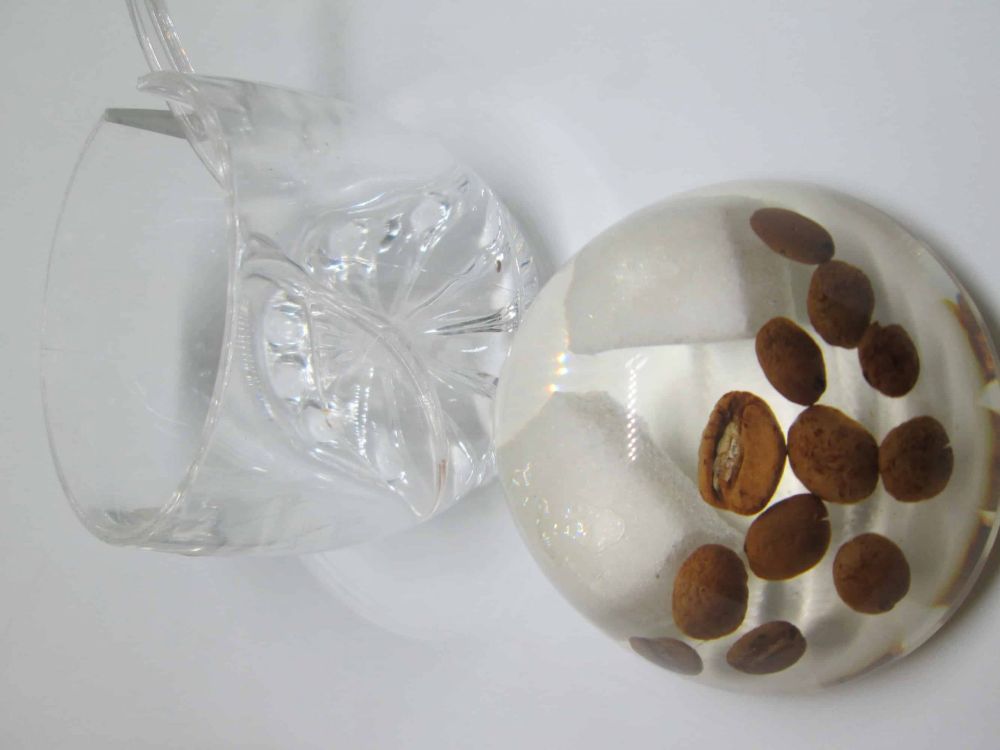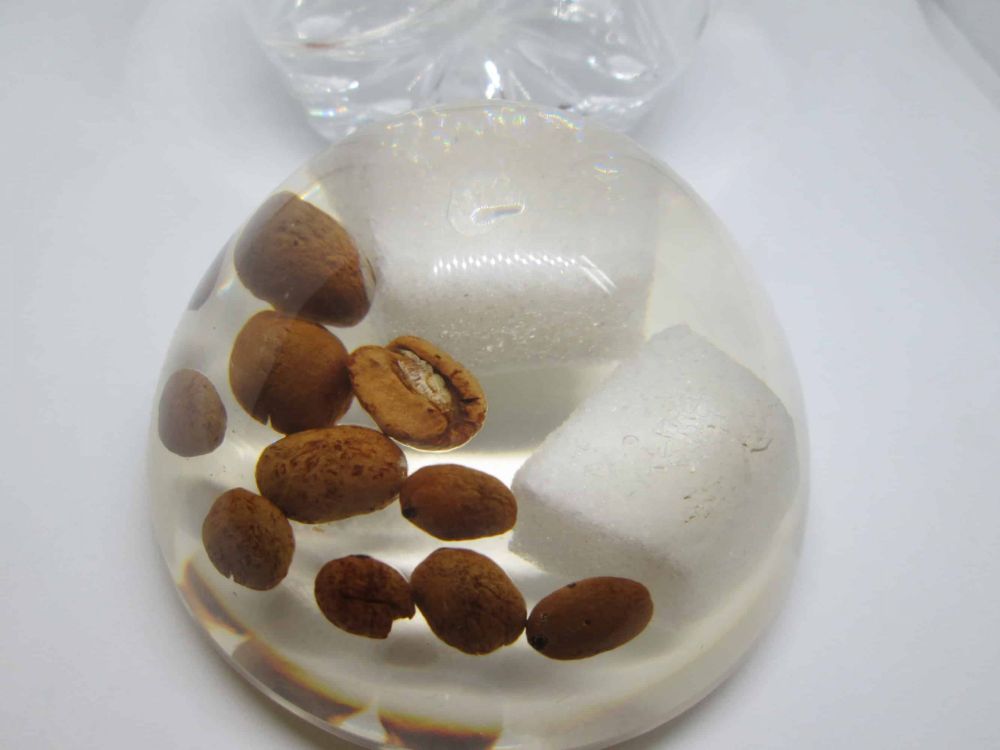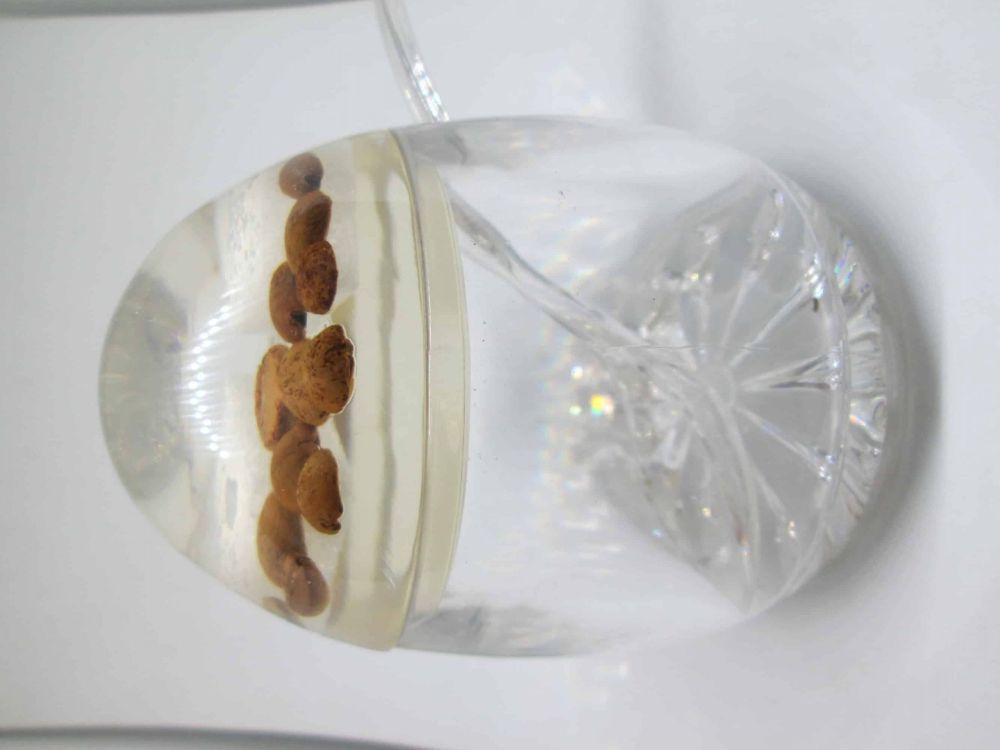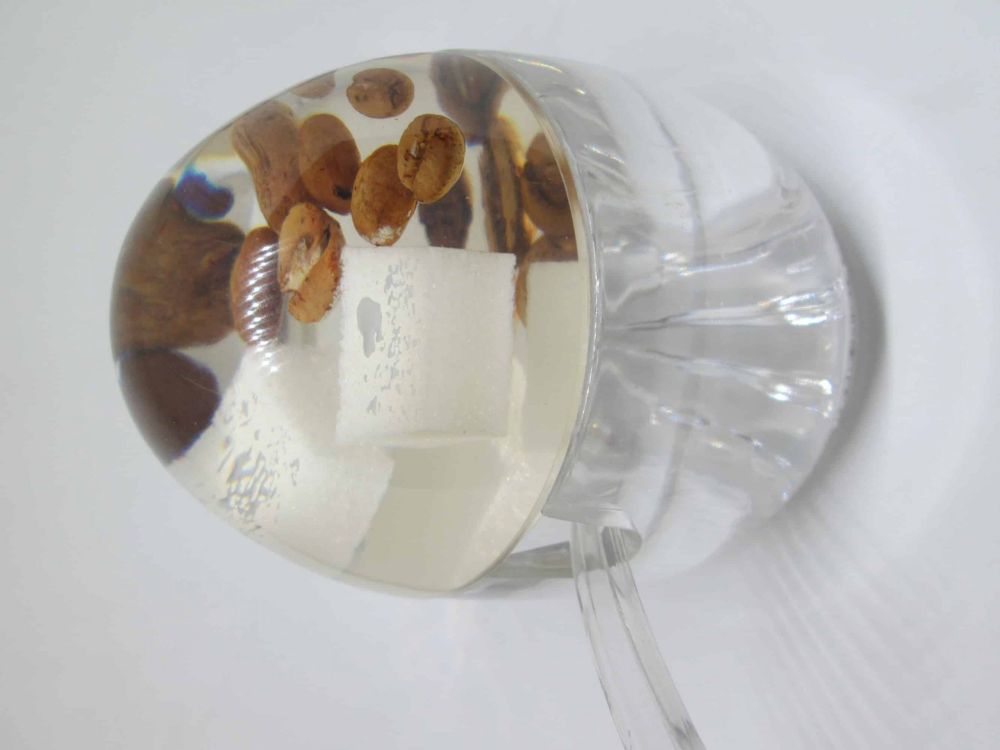Rosh Hashana Jewish New Year Honey Dish Perspex
$58.00
Rosh Hashana Jewish New Year Honey Dish Perspex with spoon .In cover are coffee beans and sugar cubes.
Dimension diameter 8.8 cm X 11.2 cm approximately.
Rosh Hashanah (Hebrew: רֹאשׁ הַשָּׁנָה), literally meaning the head of the Jewish New Year. Rosh Hashanah is a two-day holy day celebration that begins on the first day of the month Tishrei.
It is the day the creation of the world ended and the inauguration of humanity’s role in God’s world.
Rosh Hashanah most known meal is apples dipped in honey to symbolize a sweet new year. Each jewish congregation has traditional foods with a symbolic meaning. It depends on local custom such as head of fish symbolizing the prayer “let’s be the head and not tail”. There are a variety of symbolic dishes & blessings recited “Yehi ratzon“, meaning “May it be Thy will.” . The blessing uses the name of the food in Hebrew or Aramaic . The Yehi Ratzon platter may include apples (dipped in honey, baked or cooked as a compote called mansanada). Also dates; pomegranates; black-eyed peas; pumpkin-filled pastries ; leek fritters beets; and fish head intact.
Some of the symbolic foods eaten are dates, black-eyed peas, leek, spinach and gourd, all of which are mentioned in the Talmud . “Let a man be accustomed to eat on New Year’s Day gourds , and fenugreek leeks , beet leaves , and dates . Pomegranates , one of the seven species, eat to symbolize being fruitful like the pomegranate with its many seeds. The use of apples dipped in honey, is a late medieval Ashkenazi addition, though it is now almost universally accepted. Typically, round sweet challah bread is served, to symbolize the cycle of a happy & sweet year. From ancient to quite modern age, lamb head or fish head were served. Nowadays, gefilte fish and lekach are commonly served by Ashkenaz Jews on this holiday. On the second night, new fruits are served to warrant inclusion of the shehecheyanu blessing.




